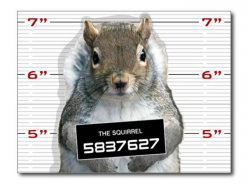
— A Kia Soul owner claims rodents and other animals keep returning to the Soul for breakfast, lunch and dinner on the soy-based wiring under the hood.
Plaintiff Tsvetelin Tsonev filed the proposed Kia soy wiring class-action lawsuit on behalf of all current and former owners and lessees of 2012-2015 Kia Soul, Sorrento, Sedona, Sportage, Forte, Cadenza, Optima and Rio vehicles purchased or leased in the U.S.
The plaintiff says he leased a 2015 Kia Soul in April 2015 that has allegedly been damaged three times because the automaker keeps replacing soy-based wiring with more soy wiring, inviting more critters to snacktime.
Each time, Kia allegedly refused to cover the repairs under warranty, leaving a combined cost of nearly $9,300. While the plaintiff’s insurer has covered most of the cost of these repairs, the plaintiff has paid the $500 deductible three times ($1,500).
In addition, the plaintiff says he has incurred over $650 in rental car charges while his Kia Soul was being repaired.
The lawsuit alleges the dealership admitted parts were damaged and that rodents had eaten the hood insulation, wiring assembly, wiring harness and positive and ground cables.
While his 2015 Kia Soul was being repaired, the plaintiff received a 2016 Kia Soul loaner vehicle that allegedly experienced the same fate.
In January 2016, the plaintiff paid $1,762 for the repair ($1,262 was covered by the auto insurer and the plaintiff paid the $500 deductible). The dealer invoice allegedly said, “Repaired mouse damaged wiring and replaced positive cable and ground cable.”
The plaintiff says less than two weeks after getting the "repaired" Soul back, the vehicle refused to start. A check under the hood allegedly showed damage to the soy-based wiring, so the car was towed back to the dealer.
Kia allegedly confirmed damage to the main wiring harness for the engine that damaged the fuel line and blocked the workings of the airbags, all to the tune of an estimated $3,200 to repair the problems. The plaintiff says he was again told the chewed wiring would not be covered under warranty, causing the plaintiff to contact Kia directly.
However, Kia denied the existence of a defect, denied the warranty claim and denied the request to terminate the lease. The auto insurer came to the rescue again, but it still left the plaintiff to pay another $500 deductible.
According to the lawsuit, about four weeks passed and the airbag warning light activated because of gnawed wires under the hood. This caused another tow to the dealer and another estimate of $4,000 to repair the damage, causing the plaintiff to request a loaner vehicle from an automaker other than Kia.
That request was allegedly refused and added another $650 the plaintiff paid for a non-Kia loaner.
Once again, the insurer picked up the tab but the plaintiff still had to pay another $500 deductible.
The lawsuit says in just four months, the soy-based wiring in the Kia Soul caused the plaintiff to incur more than $9,200 in "repair" charges and about $650 in rental car charges.
The problem can allegedly continue forever because Kia replaces defective wiring with defective wiring that animals love to munch on.
Other Kia owners have described similar problems with the wiring, including a Florida driver of a 2013 Kia Soul who told CarComplaints.com about their experience while driving to work and noticing a warning light that convinced the owner to have the vehicle towed to a dealership.
According to the Kia owner, the dealership called and said the soy-based wiring had been chewed by animals, a problem allegedly not uncommon, but one not covered by the warranty. The owner placed mothballs in socks and stuck them under the hood, now being careful about allowing the air to invade the cabin of the Soul.
"That happy hamster in the commercial is so happy because it knows it has its next snack. KIA makes and sells these cars knowing if they told the consumer prior to an incident happening such as prior to purchase of the car - the cars would not be selling!"
In the case of plaintiff Tsvetelin Tsonev, Kia told the judge the lawsuit should be dismissed because the plaintiff can't provide evidence that the wiring causes rodents and other creatures to damage the cars. Additionally, lawyers for Kia argue the plaintiff hasn't presented even one expert witness to support the claims made in the lawsuit.
Kia further told the judge the plaintiff can't show the vehicles are even equipped with soy-based wiring.
The Kia soy-based wiring class-action lawsuit was filed in the U.S. District Court for the Central District of California - Tsvetelin Tsonev, et. al., v. Kia Motors America, Inc.
The plaintiff is represented by Shepherd, Finkelman, Miller & Shah, LLP, and Goldenberg Schneider LPA.
The Tsonev lawsuit is similar to previous legal complaints, including suits filed against Kia and Hyundai in July 2017.




